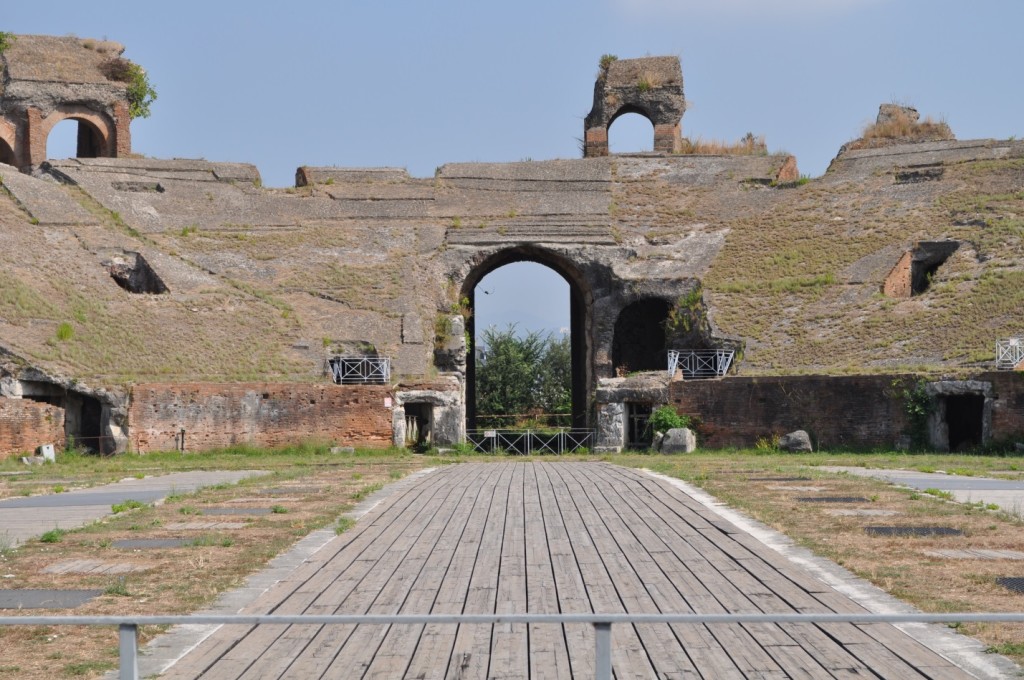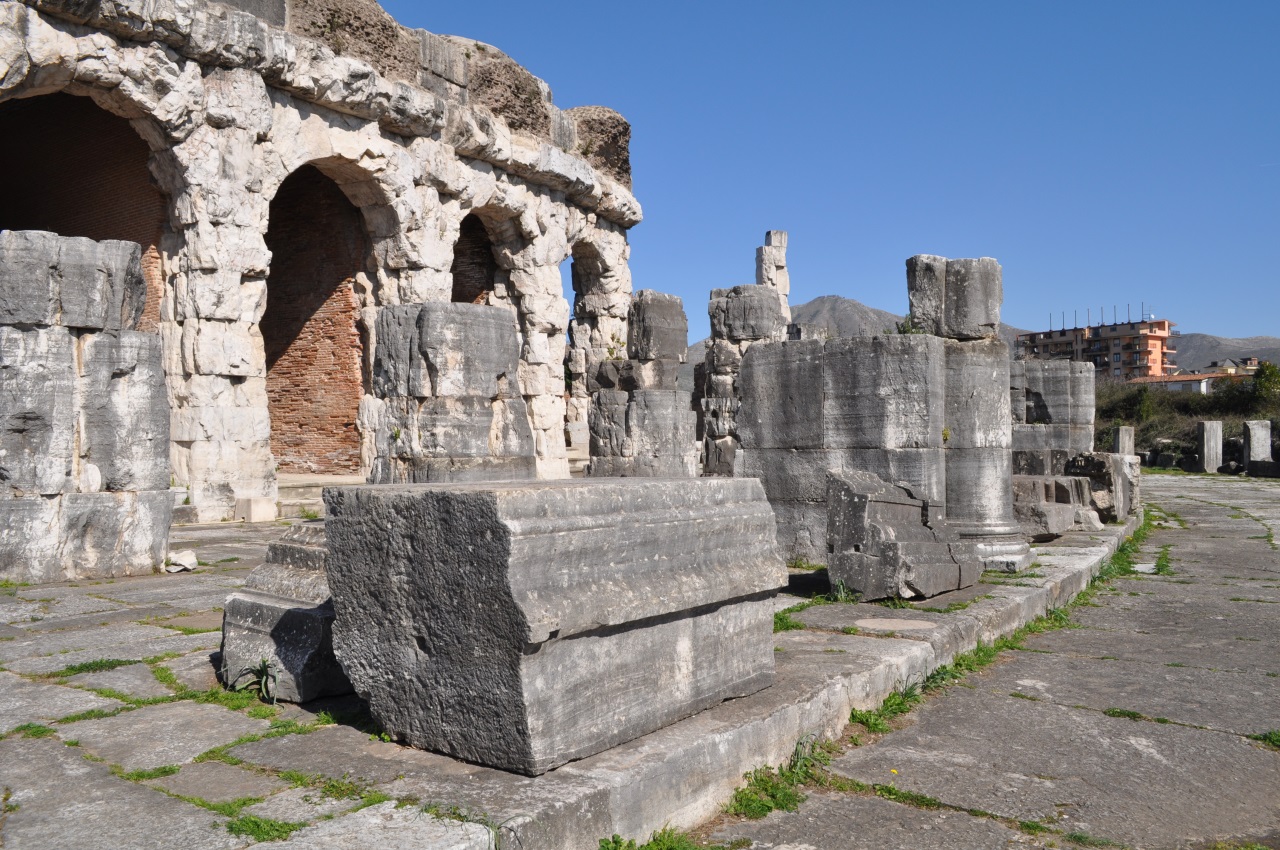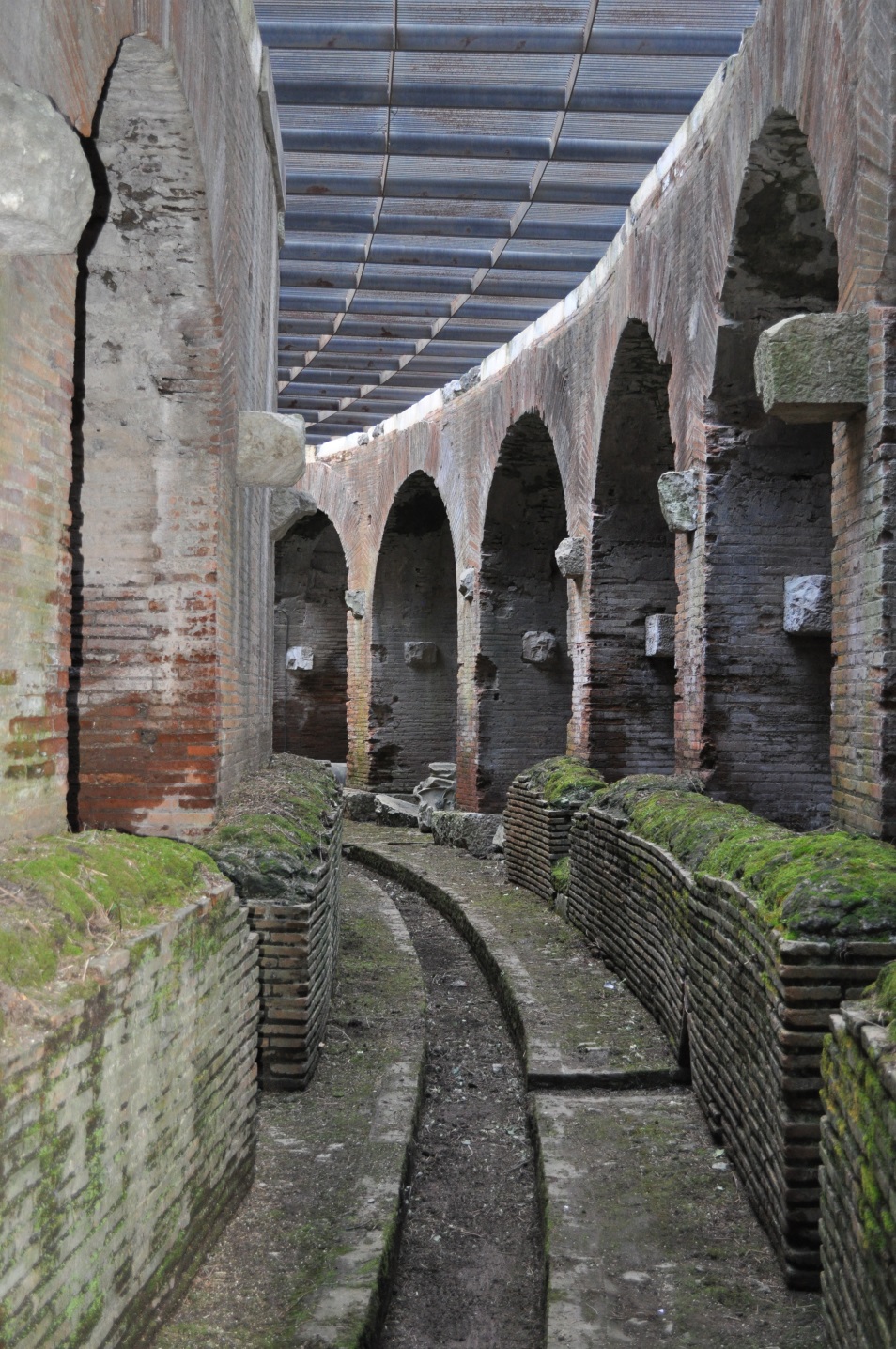A teenage boy must invoke his inner Russell Crowe and yell “Are you not entertained?” from the movie Gladiator when standing in an ancient Roman amphitheater. The ancient city of Capua, recently made famous by the STARZ show “Spartacus” now bears the modern name “Santa Maria Capua Vetere.” The city boasts a large amphitheater that offers its visitors a unique experience. Unlike Pompeii and Herculaneum, Capua was untouched by the 79 CE eruption of Mount Vesuvius. The city is often a basic stop on a tourist’s “Bay of Naples” tour and some cruise lines send excursions here. However, visits are often short and impersonal. If given the time to explore Capua and its amphitheater one must take full advantage.
The most well-known amphitheater, the Colosseum in Rome, or Flavian Amphitheater, is grand and excellent. It demonstrates the expertise of Roman engineering in a monumental way. However, the throngs of visitors to the ancient arena and the limited access to the hypogeum (substructure) mean that there is little sense of play. The experience in Rome’s Colosseum can therefore be impersonal and frenzied.
By contrast, a visit to Capua’s amphitheater will invigorate its visitors. The caretakers allow regular access to its hypogeum. The ancient, dimly lit steps that lead to the substructure create an adventurous, memorable environment. Visitors are free to make silly fighting poses and recreate scenes from the movie Gladiator in the numerous passageways. With fewer tourists and more access, pictures are unobstructed by other tourists. Adults and children alike can play a game of “Hide and Seek” thus creating a charming memory of the ruins.
Capua is also the perfect spot for enthusiasts of historical architecture. The Roman concrete work, opus latericium – regularly laid courses of brick and mortar – can be examined intimately. The perfectly spaced vaults are perfect for capturing the elliptical shape and allure of architectural parataxis. The exterior displays the remains of a barrel vaults and colonnades which are easy to imagine. Large architectural remnants lie along the colonnade and tourists may pose with these remnants of Roman technology.
Such close knowledge of Roman concrete techniques and engineering can only make a visitor the life of the next party they attend! Be sure to travel to Capua with your most jovial friends and adventurous teenagers. The lucky ones might even skin their knees or bruise their arms while exploring! Pretend you are a gladiator, or a wealthy patroness, just be sure to embrace the freedom that Capua allows. Be respectful; leave the ruins in good condition for future generations to enjoy.
Rosina Eileen Khan is an award-winning Classicist, Fulbright recipient, and historical architecture enthusiast. She seeks to help readers appreciate the architecture which hosts so many of our memories. She lives in Indianapolis, Indiana (USA) and throughout her travels stops to marvel at the architecture around her. More of Rosina’s work can be found at www.rosinakhan.com , and she welcomes communication at: rosinakhan@icloud.com.



